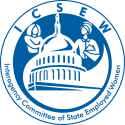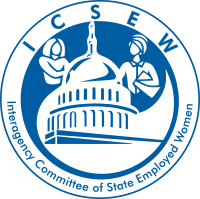Commentary: Tribal Land Acknowledgements

Commentary: Tribal Land Acknowledgements
by Taja Blackhorn, Department of Labor and Industries
Too often people view tribal identities as a thing of the past. Often when tribes and traditional homelands are actually mentioned that narrative is supported by using past tense verbs or offering a moment of silence for the victims of colonization.But, the tribal people whose identities, communities, and beliefs are shaped and defined by their relationships with the lands which we stand on today -are still here.We are still here.You, ‘hopefully’, will be exposed to many different Native Land Acknowledgements in the times to come. Each presenter sharing the gift of their own language, style, content, reasoning, and messages. So,I thought I would share how and why I present land acknowledgements the way I do.
First, I recognize the land by the peoples of the treaty and how I am related to them.
The reason I do this is because it:
1 –It recognizes the tribal entities as Nations who have a Nation-to-Nation agreement with the United States.
2 –This envelopes and includes the individual identities that exist or existed even if their current outside view/public recognition is via a confederated name ( like Squaxin –which are several different tribal nations under one “known” name)
3 –Provides a touch point with an “Americanized” name, so that those who are interested in learning more can research the deeper information. Versus people feeling overwhelmed by individual names and turning away from a potential learning opportunity.
Then, in the Land Acknowledgement itself, I include five elements:
1 -Recognize the “traditional homeland” aspect for the tribal nations.
This is a part of our identity that is inseparable from who we are. This relationship is our past, our present, and our future. It is our relatives, our breath; it flows in and through us, inseparable from ourselves. Even if we are not currently residing in our traditional homelands, like myself or some other Urban Indians,we still feel that connection.
2 –Be sure to say “thank you”. So simple. So important.
3 –Recognize and call out that the tribe, the native peoples of that land,“are still here”.
Too often people use past tense to describe us.
4 –Acknowledge the importance of hospitality and generosity between peoples.
This is integral part of our culture and something that would benefit all peoples.
5 –Share an educational point that links the past, present, and future.
For none stand on their own.And we don’t know what we don’t know.
Sharing knowledge builds bridges between peoples, inspires curiosity and future growth, supports positive self-identity, creates cultural awareness and protection, and in some cases,even cultural revitalization and reclamation by linking the past with the present and the present with the future.
Land acknowledgements are more than a list of boxes to be ticked –that is just a starting point. It is creating an opening space where we can learn and grow.
This moment of lived present is ultimately about recognition. Being seen as a full and true human being, entitled to being included in the general consciousness and the societal narrative. This is important beyond words, for any who have been treated as less than.
The narrative is about coming together to support one another and create the space where specialized knowledge and lived history can become part of the general consciousness. Advocating for support and direct actions to build a better community, a better society, a better common future.
That common future is a link that connects all of us.
All of us standing together on this day on this sacred and much loved land.
Standing together,as a new step is woven into the dance of dismantling barriers, lifting voices and hearts, and making life a better place to be
Ariss Uwiwawahokapar!
Thank you be well, be happy, and be welcomed.
Note: Taja Blackhorn, a member of the Kahosadi people from southern Oregon, has engaged in Diversity, Equity, and Inclusion outreach and education for more than 30 years, and has recently added Native Land Acknowledgements and Lunch and Learns for state agencies to her efforts.
For more information on ICSEW and the amazing people involved please visit us at https://icsew.wa.gov/

